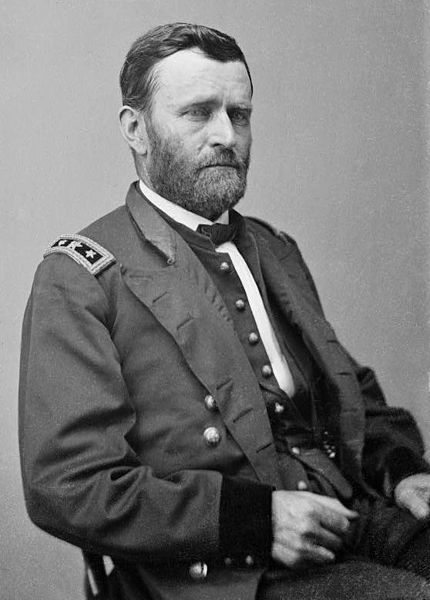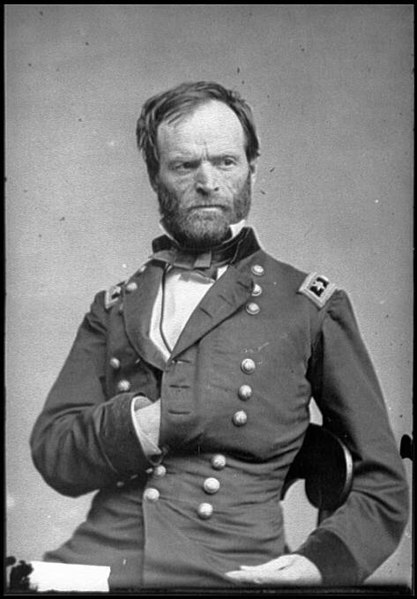The Jackson expedition, preceding and related to the siege of Jackson immediately followed the Confederate surrender of Vicksburg, Mississippi on July 4, 1863 to Union Army Major General Ulysses S. Grant commanding the Union Army of the Tennessee. The Confederate Army of Mississippi at Vicksburg, under the command of Lieutenant General John C. Pemberton, had been isolated in the Vicksburg defenses by Grant's forces since May 18, 1863. The Confederates were under constant artillery bombardment, had to fight off a series of Union Army attacks and could not receive supplies of food and ammunition during the siege.
Siege of Jackson, Mississippi, July 10–16, 1863
Major General Ulysses S. Grant, USA
Lieutenant General John C. Pemberton, CSA
Major General William T. Sherman Union Army
The Siege of Vicksburg was the final major military action in the Vicksburg campaign of the American Civil War. In a series of maneuvers, Union Major General Ulysses S. Grant and his Army of the Tennessee crossed the Mississippi River and drove the Confederate Army of Mississippi, led by Lieutenant General John C. Pemberton, into the defensive lines surrounding the fortress city of Vicksburg, Mississippi, leading to the successful siege and Confederate surrender.
The Siege of Vicksburg - Assault on Fort Hill by Thure de Thulstrup
Statue of General Grant at Vicksburg National Military Park
Maj. Gen. Ulysses S. Grant, Army of the Tennessee, USA
Lt. Gen. John C. Pemberton, Army of Mississippi, CSA






